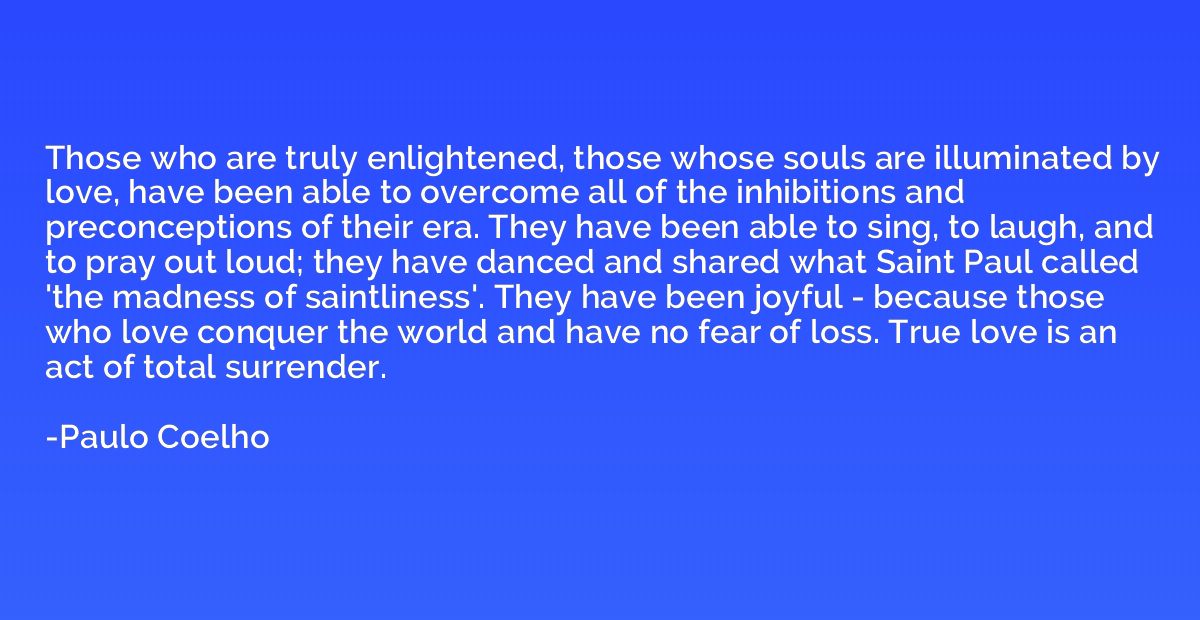Quote by Paulo Coelho
Those who are truly enlightened, those whose souls are illuminated by love, have been able to overcome all of the inhibitions and preconceptions of their era. They have been able to sing, to laugh, and to pray out loud; they have danced and shared what Saint Paul called 'the madness of saintliness'. They have been joyful - because those who love conquer the world and have no fear of loss. True love is an act of total surrender.

Summary
This quote suggests that individuals who are enlightened and guided by love have surpassed societal norms and expectations. They embrace their authentic selves, expressing their emotions unabashedly through singing, laughter, and prayer. They find joy in the unfiltered expression of their love, embodying what Saint Paul referred to as the "madness of saintliness." By surrendering themselves entirely to love, they become fearless in their pursuit, conquering worldly limitations. True love, according to this quote, requires a complete surrender and leads to liberation and contentment.
By Paulo Coelho














